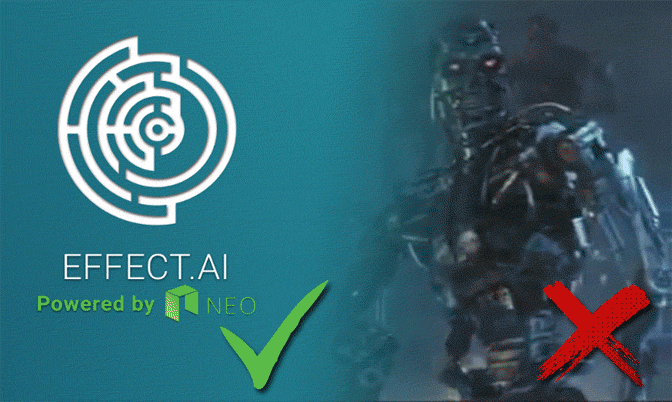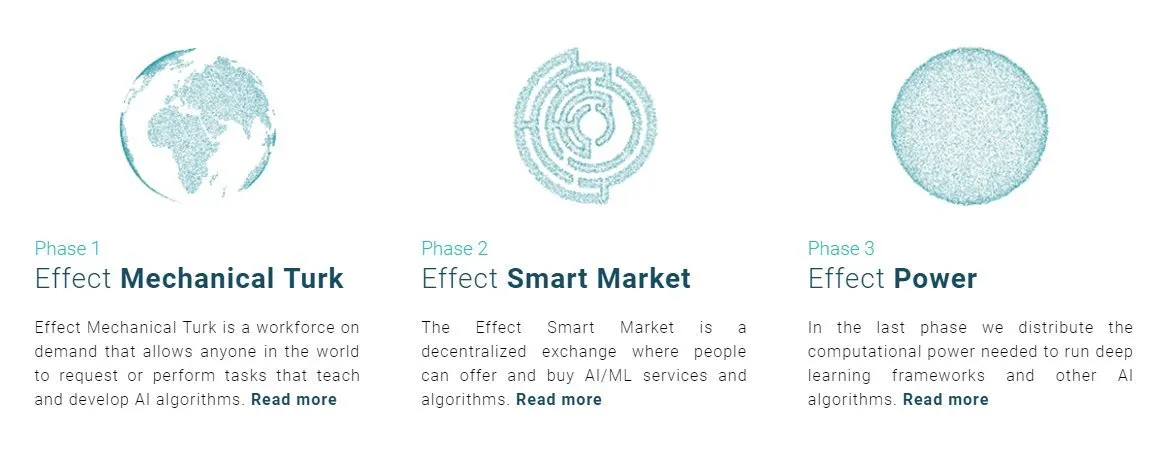
THE "FRANKENSTEIN" PARANOIA
I’d love to get through an article discussing the development of AI without dropping in any clichéd references to Mary Shelley’s Frankenstein, I really would – but, look, why put off the inevitable? There really is no clearer illustration of how, during periods of radical technological progress, we tend to use Science Fiction as a kind of therapeutic outlet for our collective hang-ups and paranoias. This year marks the 200th anniversary of Shelley’s classic gothic masterwork – a book she wrote as part of a horror-writing competition with her husband Percy-Bysshe and Romantic poet homeboy Lord Byron, during a time when the world was shifting dramatically. The Industrial Revolution was in full swing, disrupting almost every aspect of human life, changing where people lived and how they worked and even upsetting their fundamental beliefs about their place in the universe. Transition is frightening, and Shelley’s book tapped into that unvoiced concern we often have at the back of our minds when progress threatens to sweep away our old certainties:
“Can we stay in control?”
I mean, it’s no wonder she blew Byron’s novella about sexy vampires out of the water…

Exactly two centuries later and these preoccupations remain as prevalent as ever. Whilst we now know that we can’t give life to new beings through galvanism or blasting corpses with lightning (sorry, Shelley), a 21st century “monster” has emerged in the form of Artificial Intelligence (referred to by some as the “Fourth Industrial Revolution”). From Asimov and the Teminator franchise to Alex Garland’s brilliant Ex Machina, our worries about AI have been a compelling mainstay of the entertainment industry for many decades, but we’re now reaching the point where what was once the sole domain of fiction is becoming a fundamental part of our daily reality… and, naturally, it has some people worried.
A long list of distinguished figures in science and technology have come forward at varying points to warn of the potential dangers posed by AI, including Professor Stephen Hawking, Elon Musk and Bill Gates. One particular scenario that causes much of the panic and hand-wringing is the idea of the "technological singularity”: the notion that we’ll end up building machines of sufficient intelligence that they’ll be able to re-design themselves to be even more intelligent, bringing about a feedback loop that leads to… well, the kind of sensationalist doomsday scenarios we’ve enjoyed scaring ourselves with in films and books for the last 70 years or so.

So what’s the solution: do we attempt to ban progress – do we campaign to have the genie put back in the bottle? History shows us that this is virtually impossible, and is probably about as sensible as Mary Shelley campaigning to have the steam engine made illegal... "You can't turn the omelette back into eggs", as Andreas Antonopoulos so perfectly puts it (in this case, talking about another disruptor: Bitcoin) Moreover, to think like this is to ignore the countless ways AI stands to enhance and improve our quality of life: from freeing us from the burden of repetitive tasks and creating better jobs, to improving medicine and even helping us explore space [1]. Over the last five years, there has been an explosion in the number of practical AI applications. From image translation and advanced voice recognition in smart phones to more dramatic developments like self-driving cars – AI is gradually working its way into our everyday lives. A 2017 report asserts that the AI industry is likely to reach a compound annual growth rate of 17.2 percent by 2023, with the market swelling to a staggering $14.2 billion over the next six years (up from just $525 million in 2015)[2] up to $15.7 trillion as early as 2030[3]. Anyone with any sense can see that AI is already here to stay, and rather than uselessly ignoring or resisting it, we need to embrace and work with it. Yes, there are potential risks involved, but I think it all comes down to that thorny issue of ensuring that we maintain a high degree of transparency and democratic control.
THE "SKYNET" PROBLEM and EFFECT.AI's THREE PHASE SOLUTION
Enter Effect.AI and The Effect Network; a disruptive blockchain solution to a disruptive technological problem.

If those good old Terminator films have taught us anything (apart from the fact that Christian Bale is obviously a nightmare to work with…), it’s that allowing AI development to be monopolised by a single corporate interest is probably not a Nobel Prize winning idea. I'm looking at you, Cyberdyne. However, the problem remains that, thanks to the colossal expenses involved, even though academic papers and achievements are available to the public, the vast majority of intelligent algorithms are currently developed behind the closed doors of large, relatively opaque companies. Whilst decentralisation and transparency are clearly more crucial than ever in this field, achieving them looks far from straightforward.

It was as a response to precisely this problem that the Dutch company Effect.Ai was founded in 2015. Having worked together at Itsavirus, a company with nearly a decade’s worth of experience developing tech for large multinationals such as Heineken and Shell, the core team split away to pursue their vision of bringing greater democracy to the AI development industry. It is their firm belief that having an open, accessible and affordable platform for developing and operating intelligent algorithms is a necessity as we move forward in this hugely significant and disruptive field. And the exciting thing is, they look like they have all the tools to deliver it.
Unlike OpenAI, the non-profit operated by Elon Musk – a project with which Effect.AI shares a number of goals (notably, a desire to create safe artificial intelligence and ensure that AI's benefits are as widely and evenly distributed as possible) – Effect.AI draws upon the transparency and decentralised power of the NEO blockchain. Moreover, unlike many companies that are currently piggy-backing on cryptocurrency’s share price-boosting power as a buzzword, the blockchain represents a fundamental (rather than ornamental) part of their vision. In fact, so ambitious is this vision, that they’ve had to break it down into three distinct parts:

Phase 1: Effect Mechanical Turk
Although machine learning is in a comparatively advanced state these days, AIs still perform inconsistently when it comes to tasks such as image classification, audio transcription and data labelling, and training AI algorithms is a long and painstaking process that still requires human assistance. Accordingly, the initial phase of The Effect Network will involve an interactive marketplace for tasks that still require human intelligence. This will grant AI developers and businesses direct access to an on-demand, scalable and globally distributed workforce of human assistants. You can think of this element as a decentralised version of Mechanical Turk (M-Turk) that will allow anyone in the world to choose from a variety of tasks and receive fair payment for performing them.
Emphasis on fair: I cast my mind back with a shudder to my Uni days and making about 16p (around 0.8 USD) in an afternoon of repetitive drudge on Clickworker (times were hard). Thanks to Effect Mechanical Turk’s decentralised nature and lack of fees, Effect.AI’s human workforce will be considerably better remunerated than I was then – receiving their payment in the form of a liquid NEP-5 token called EFX. And the Effect team are so serious about guaranteeing a beneficial exchange rate, they are implementing something called the Effect.AI Galaxy Network (EGP) – a governed exchange system and pool filled with NEO and GAS, along with EFX and other NEP5 tokens, that will assure stable exchange rates and the ability to increase liquidity. It’s clearly win:win for both workers and requesters, and whilst it may not be on quite the same dramatic level as, say, sparing humanity from robot-inflicted laser death, offering a generation of students a non-exploitative way to make extra money whilst pushing forward the development of advanced AI is still doing society a pretty awesome service!
Phase 2: Effect AI Marketplace
The second phase of The Effect Network is a natural progression of the network from phase 1, expanding out from the exchange of human mediated services, into a decentralised platform where buyers and sellers will be able to exchange AI services. They call this the Effect AI Smart Market. This marketplace will allow those AI developers who have a functional algorithm to sell, rent or even donate its services for a simple and easy payment (again in the form of the EFX utility token). There is also a collaborative element here, as algorithms will have the ability to communicate and work with other algorithms and purchase services from each other – helping to accelerate development.
Phase 3: Effect Decentralized AI
If phases one and two worked to decentralise the data gathering process and the use of the algorithms, the final phase involves relocating computation itself to a globally distributed network with no single point of failure: i.e. the development of a fully decentralized computational platform with the ability to run popular deep learning frameworks. This “Effect Decentralized AI engine” will be based on popular deep-learning networks like Caffe, MXNet and Tensor flow and will supply the computational power needed to run AI algorithms globally. They plan on achieving this either through partnerships with other projects (for example, the decentralised blockchain “supercomputer,” Golem [4]) or through actually creating the framework themselves.
And there you have it, the blockchain answer to Robo-geddon: an open, democratised and decentralised AI development platform that puts control back in the hands of the many, not the few – and, all facetiousness about the end of the world aside, a fantastically worthwhile project with a good ethos, poised on the brink of achieving some very exciting things in an industry set for exponential growth. So next time someone famous tweets about how we’re on a collision course with doomsday and calls for heavy regulation or an outright ban of AI development, maybe point them in the direction of Effect.AI?
It might just help them chill out a bit.


Main Site - https://www.Effect.AI
Whitepaper - https://effect.ai/download/effect_whitepaper.pdf
Social Media:
Youtube - 
Twitter - https://twitter.com/effectaix
Reddit - https://www.reddit.com/r/effectai
Medium - https://medium.com/@effectai
Facebook - https://www.facebook.com/effectai/
LinkedIn - https://www.linkedin.com/company/27091205/
Steemit - https://www.steemit.com/@effectai
GitHub - https://github.com/effectai
Effect AI ANN - https://bitcointalk.org/index.php?topic=2737469.0;all
Footnotes:
[1] https://www.nasa.gov/centers/ames/research/exploringtheuniverse/spiffy.html
[2] https://www.wiseguyreports.com/reports/2111655-global-artificial-intelligence-ai-market-outlook-2024-global-opportunity-and-demand
[3] https://medium.com/effect-ai/announcing-effect-ais-288dc5e4733a
[4] https://golem.network/